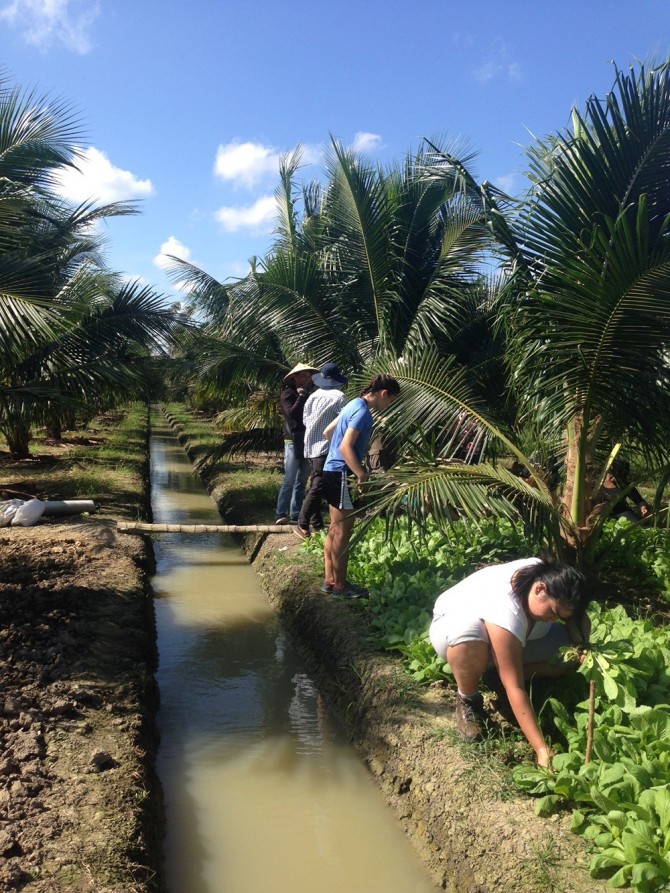New engaged learning curriculum offers gateway to the world
By Linda B. Glaser
Launching this fall, the Department of Anthropology’s new Global Gateways course sequence will give students the opportunity to prepare for, and make the most of, Cornell’s off-campus opportunities, from engaged learning programs to study abroad. The Global Gateways three-course curriculum uses techniques of active learning and peer mentorship to promote hands-on, practical development of intercultural engagement skills. The curriculum development was supported by a 2016 Internationalizing the Cornell Curriculum grant, and grants from Engaged Cornell and the College of Arts and Sciences’ Active Learning Initiative.
“Whether you are heading to another continent or out your door, the most important skill for thriving in today’s global marketplace is the ability to connect, collaborate and create across lines of social and cultural difference,” says Adam T. Smith, the Goldwin Smith Professor of Anthropology in the College of Arts and Sciences. “As recent events have shown, the skills of intercultural engagement have never been more critically in need than they are today.”
Says Hayden Kantor, Ph.D. ’16, the postdoctoral associate for global engaged learning in anthropology: “As anthropologists who think very critically and profoundly about how to connect with people in different communities and contexts, we thought our department would be well-positioned to offer this curriculum. But we recognized that the same old model of lecture or discussion wasn’t going to cut it for these courses. We need to give our students some active and engaged pedagogical approaches to develop themselves as global citizens, with practical skills and theories they can put into place.”
The first course, ANTHR 1900, Global Engagements: Living and Working in a Diverse World, introduces students to the principles of engaged learning and provides opportunities to participate in service-learning projects on campus and in the Ithaca community. The second course, ANTHR 3901, Going Global: Preparing for Engaged Learning, is a pre-departure, half-semester course that convenes with 1900 during the second half of the semester. The course helps students preparing for study abroad to hone the anthropological skills needed for intercultural communication and reflection. The third course, ANTHR 3902, Coming Home: Making the Most of Engaged Experiences, is a half-semester course that meets with 1900 during the first half of the semester. Coming Home is a post-study abroad course where students reflect on their experiences and mentor students who are considering off-campus opportunities. The Global Gateways curriculum is open to students from any major, college and level of experience who are going on or are interested in any off-campus program.
“One of the ways we hope to increase the numbers of students studying abroad is to give them a taste of what it’s like to learn in a nontraditional environment, to have active learning, to do your own project, to have a relationship with a community partner. That taste early on can build momentum for global and engaged experiences,” Kantor says.
The goal of the Global Gateways curriculum is to give students the opportunity to learn like anthropologists. Anthropology entails careful observation, active participation and open-minded conversations, skills students can learn to cultivate and apply to many parts of their academic careers. Moreover, anthropological writing is an important skill for students to learn. “We are delighted to have teamed up on this curriculum with the Knight Writing Institute,” says Smith. “They bring unparalleled expertise in how to cultivate a commitment to written expression. For anthropology, this means using vivid description and compelling narratives to bring unfamiliar worlds closer to home and at the same time unsettle our own routines and beliefs.”
On campus, Global Gateway is partnering with the English Language Support Office and is supported by the Study Abroad office and the Public Service Center; community partners include the History Center in Tompkins County and TST BOCES.
Click here to read a longer version of this story.
Linda B. Glaser is a staff writer for the College of Arts and Sciences.
Media Contact
Get Cornell news delivered right to your inbox.
Subscribe